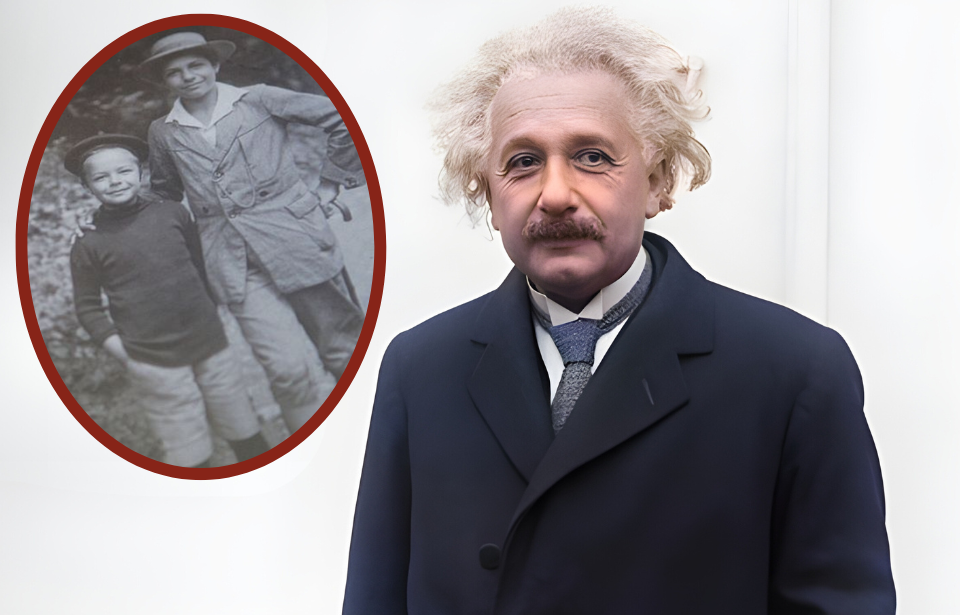They say that in every life a little rain must fall. Everyone has their own personal pain, struggles and losses, even truly remarkable people. That was certainly true for Albert Einstein, the man who developed the theory of relativity. While he made tremendous contributions to the field of physics, he faced some struggles in his personal life, among them his youngest son, Eduard’s, mental health.
Albert Einstein weds fellow physics student Mileva Marić
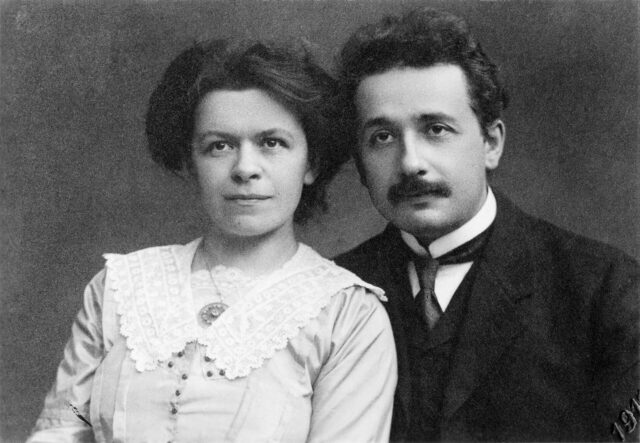
Albert Einstein was married twice in his life, although his three children were all a product of his first marriage. The physicist met Mileva Marić while they were both attending Zürich Polytechnic Institute. She was four years his senior and the only woman who was studying physics at the school. Marić wasn’t just Einstein’s lover – she was also an intellectual companion who supported and contributed to his work.
Marić gave birth to an illegitimate daughter in 1902, whom they named Lieserl. Some sources say she was adopted in infancy, while others suggest the baby died of scarlet fever at a year and a half old. The pair wed in 1903 and their sons were born soon after.
An affair with Elsa Einstein Löwenthal
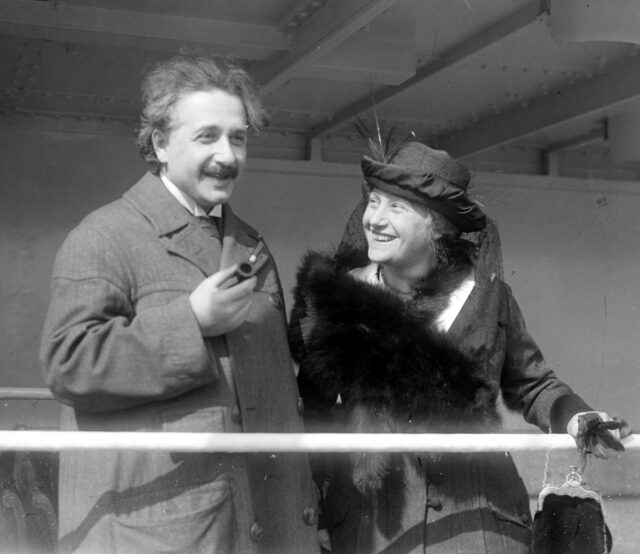
Albert Einstein and Mileva Marić’s marriage wasn’t a particularly happy one and, in 1912, the former began an affair with his cousin, Elsa Einstein Löwenthal. His letters to Lowenthal during this time indicate a clear disenchantment with Marić, and he makes it clear they were no longer intimate in any capacity.
Einstein divorced Marić in 1919, five years after their separation, and married Löwenthal. The couple migrated to the United States in the 1930s, to escape the growing threat of the German regime. There were no children from their union, and Einstein had extramarital affairs throughout the marriage, until Löwnthal’s death in 1936.
Hans Albert Einstein
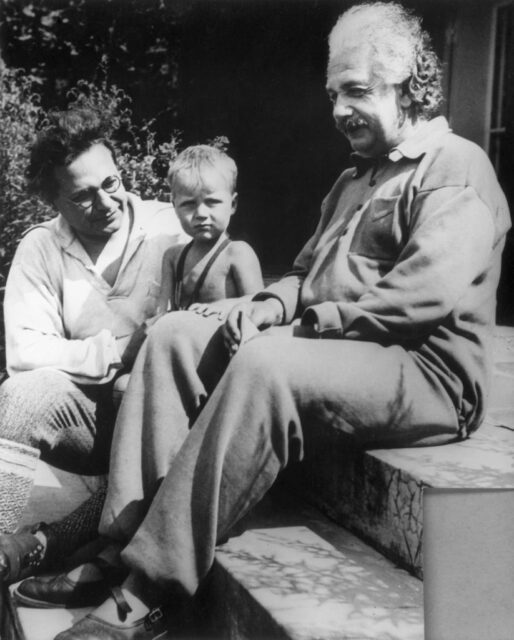
The boys lived with their mother after the divorce. Albert Einstein ensured they were taken care of financially and maintained a rich correspondence with them throughout their childhood. Hans Albert had a normal childhood, even if he and his father had a somewhat troubled relationship. He eventually went on to study at the same institute that his parents had attended, graduating with a degree in civil engineering. He later earned a doctorate in technical science.
In 1938, Hans, too, fled Germany. He settled in Greenville, South Carolina, and spent several years working there before moving to California, where he became a full-time professor at the University of California, Berkeley. He married and had four children his first wife, Frieda Knecht. The eldest was Bernhard, and he was the only one to survive into adulthood.
While in the United States, Hans and his father eventually rebuilt their relationship, and he spent a lot of time with the older Einstein during his final illness.
Eduard – The ‘Forgotten’ Einstein
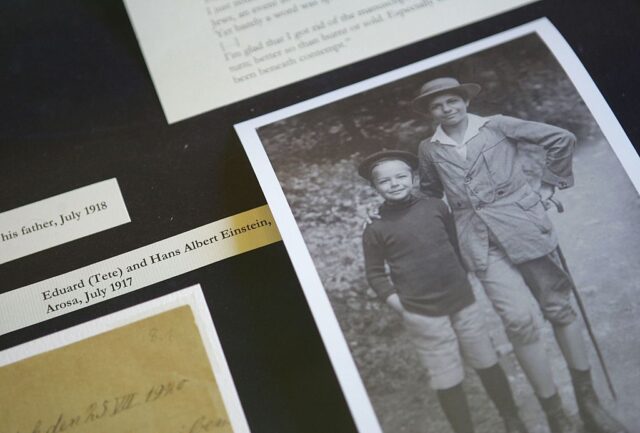
Relatively little is known about Eduard Einstein, other than he was a bright, but sickly child. In his youth, he became fascinated with psychiatry, especially the work of Sigmund Freud. He was a good student and began studying medicine to himself become a psychiatrist
Eduard was diagnosed with schizophrenia at the age of 20 after attempting to take his own life. He was institutionalized a few years later. Einstein’s biographers have suggested the treatment he received caused more damage than relief, and Hans Albert firmly believed that the electroconvulsive therapy Eduard was given caused him permanent cognitive and memory problems.
After his first hospitalization, Eduard returned to his mother’s home, and she was his primary caregiver up until her death. After Mileva Marić’s passing, he was institutionalized again. He remained there until he died of a stroke in 1965.
More from us: Survival Skills of the Past That Have Been Forgotten Over Time
Eduard and Albert Einstein maintained correspondence throughout his hospital stay and after his father’s emigration, but the two never saw each other again.
